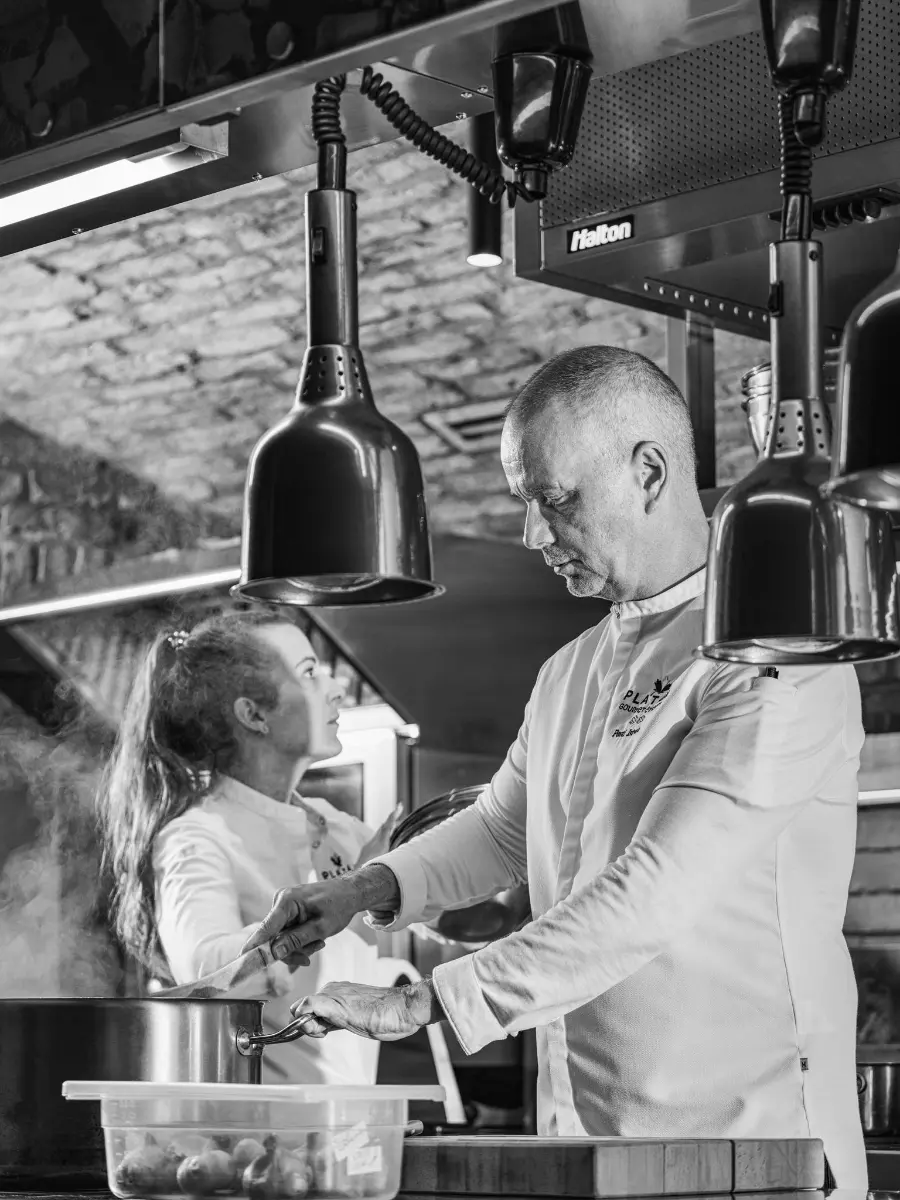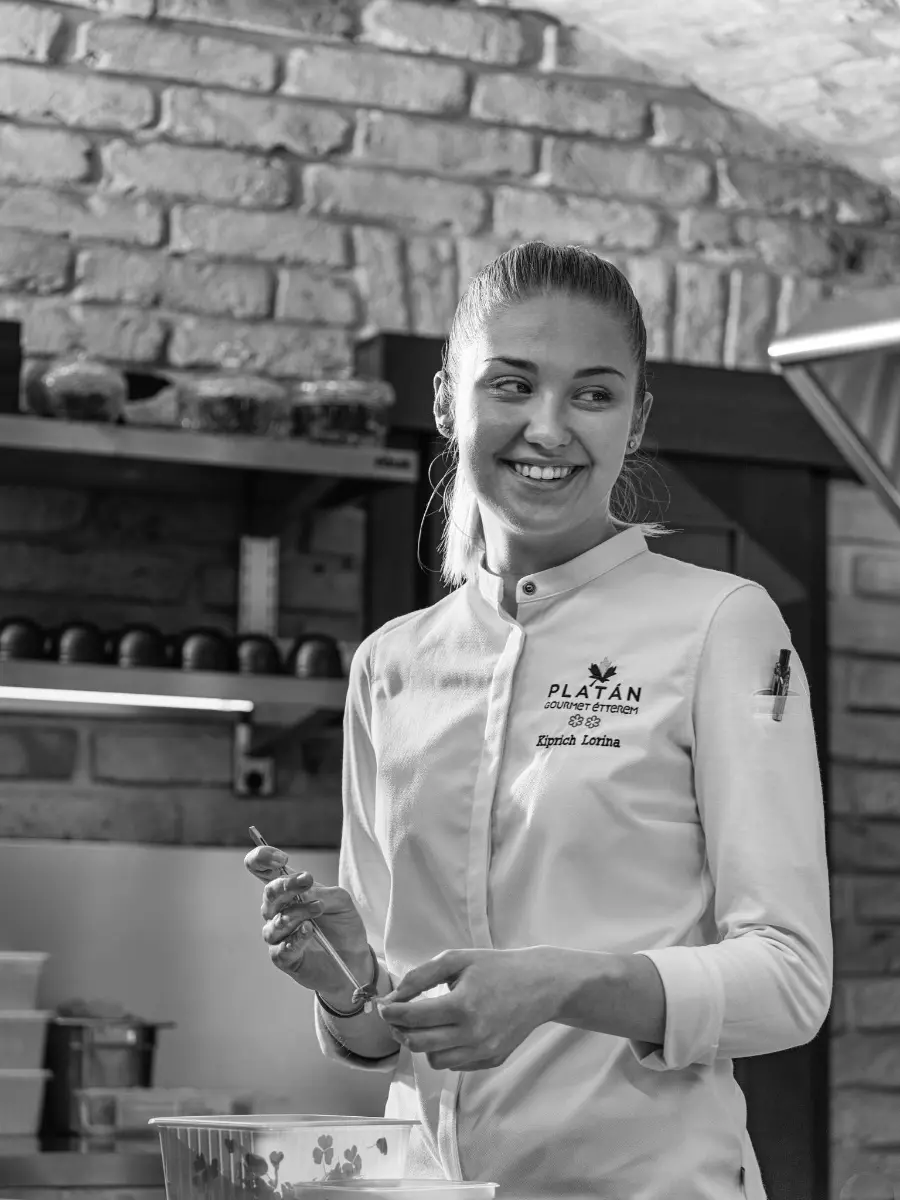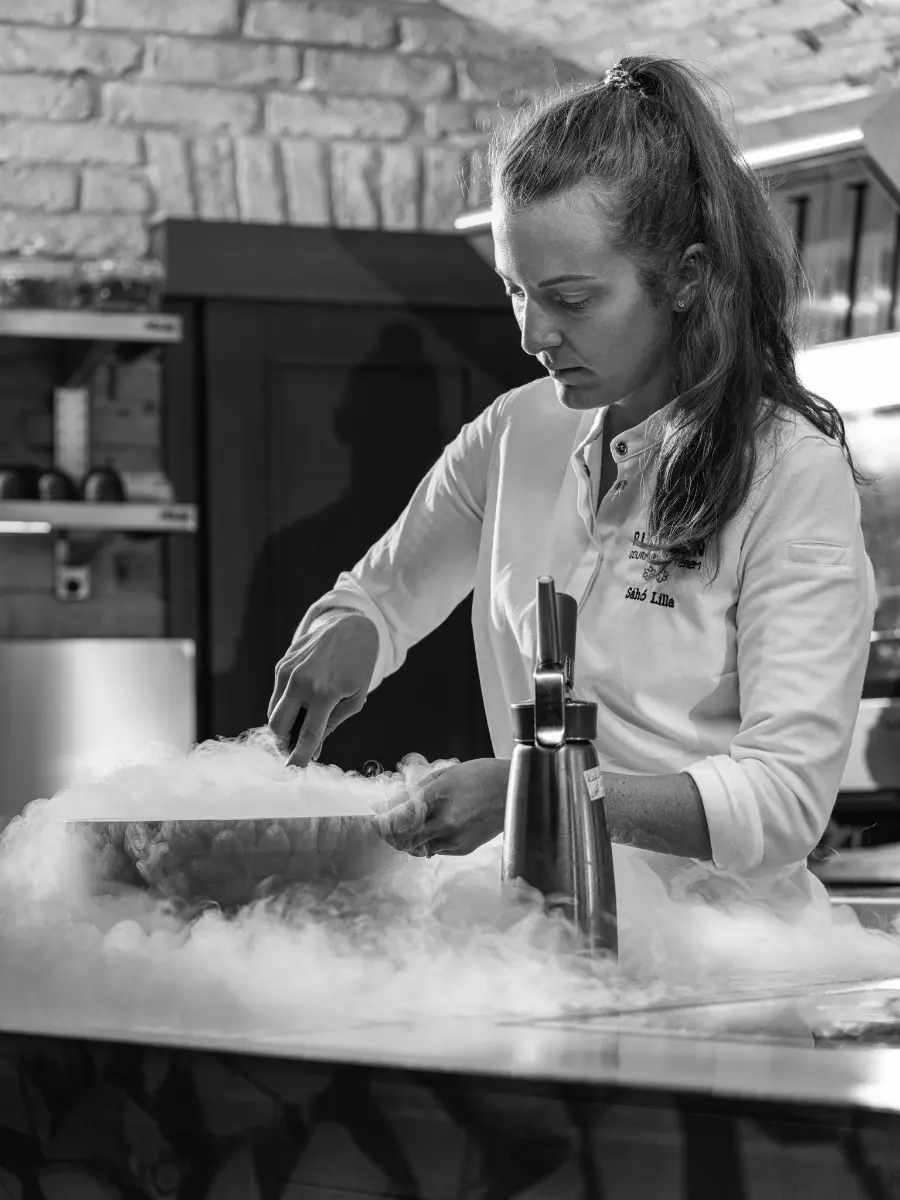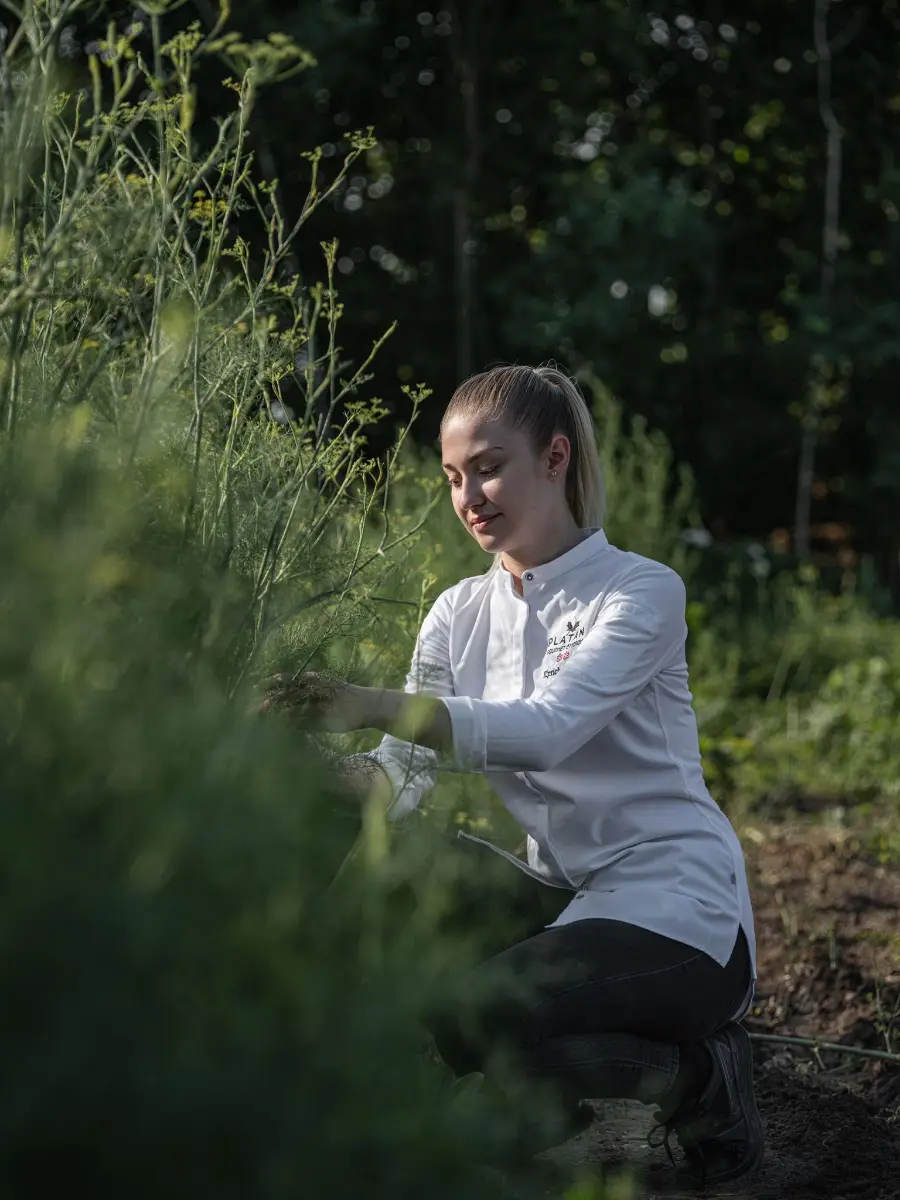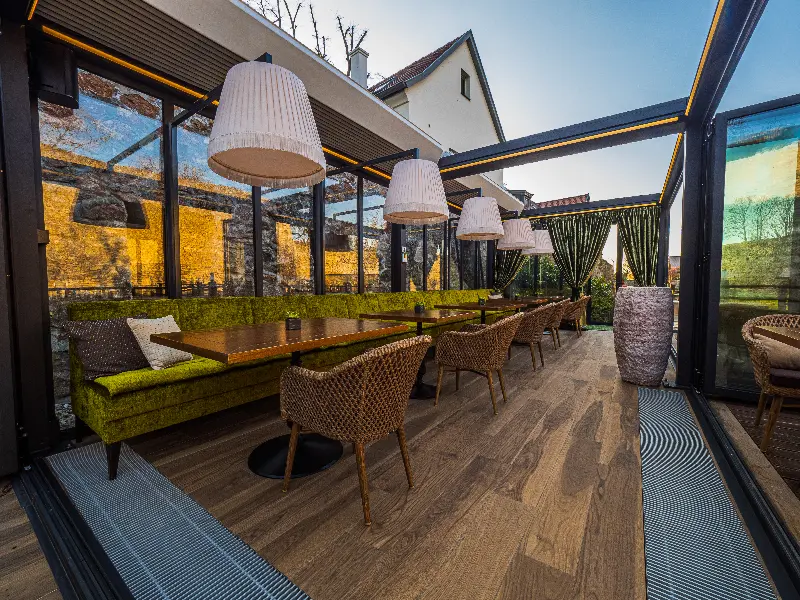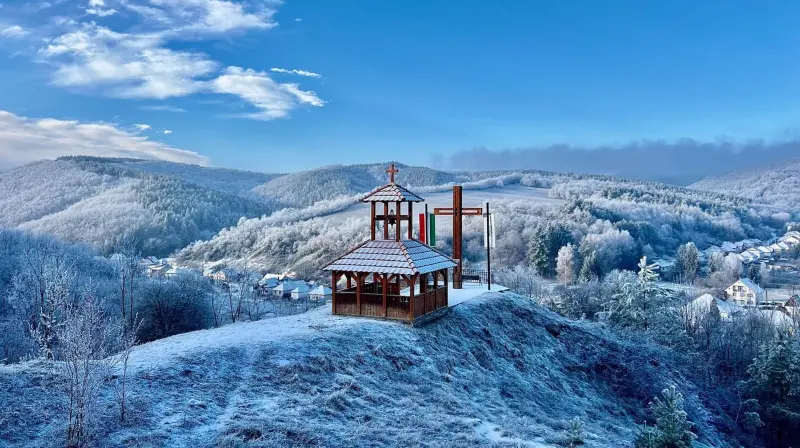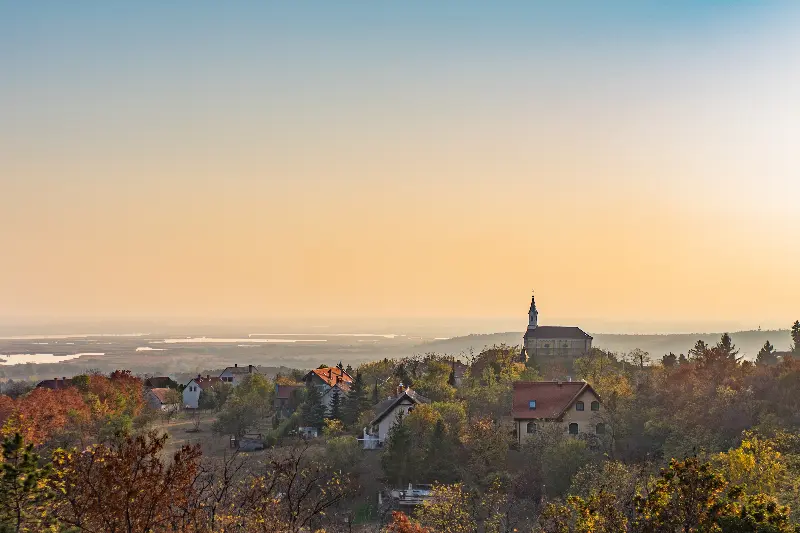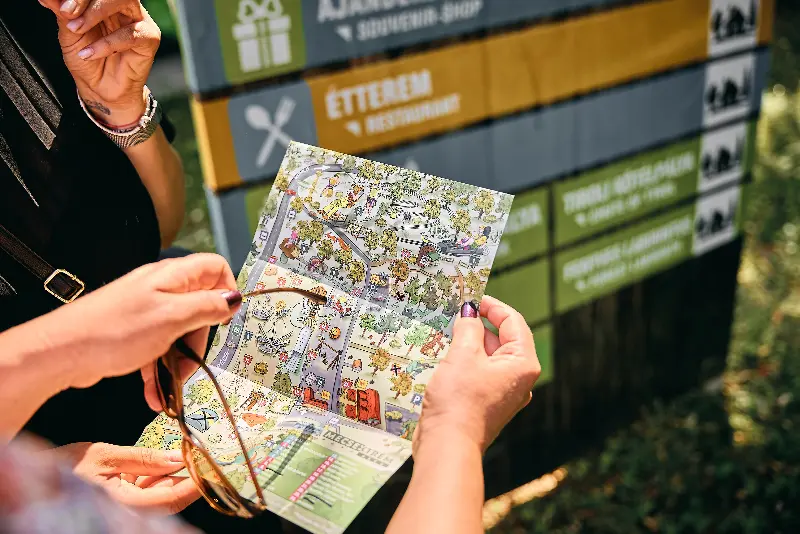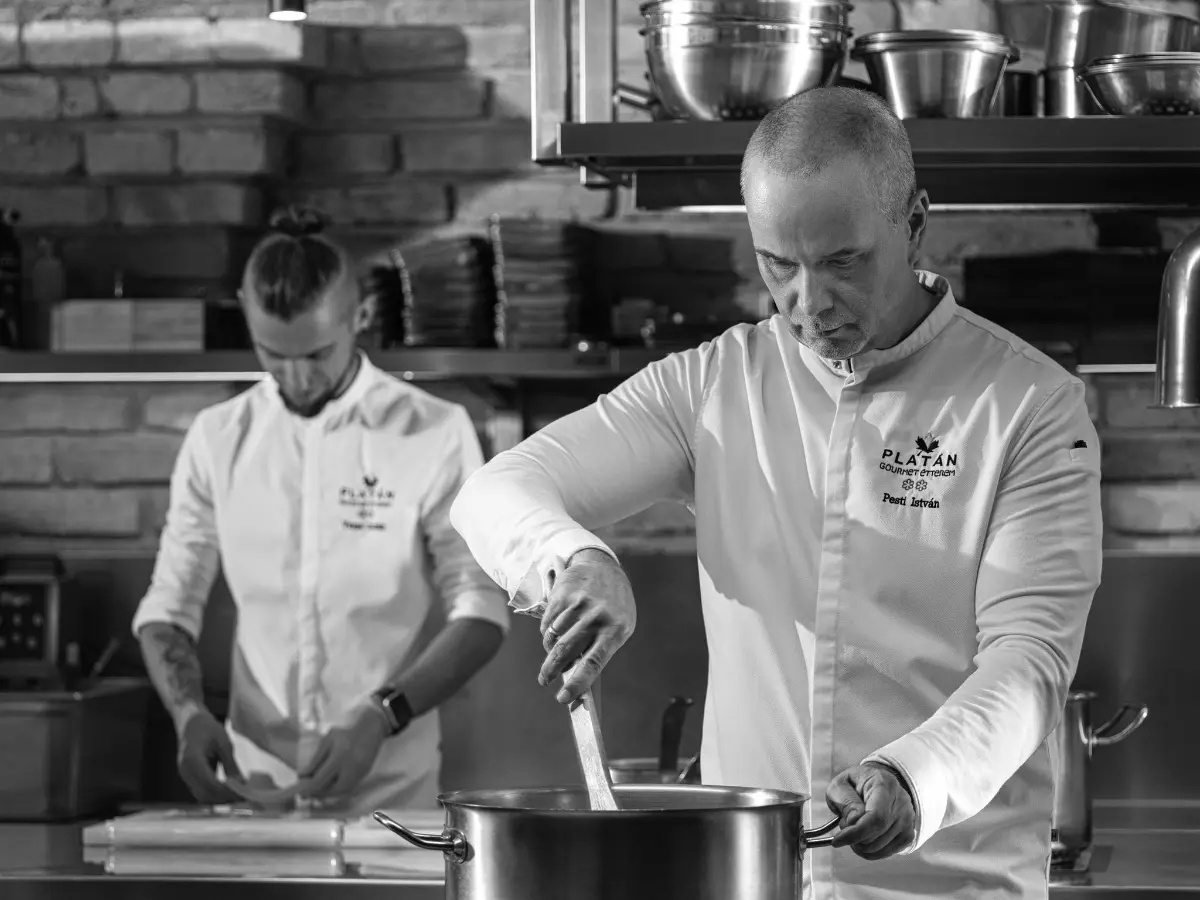
Helyszín címkék:
Only the starry sky is the limit – interview with István Pesti
Francisck Réka Alíz
István Akács, the young chef of the Pajta Restaurant in Őriszentpéter, once said that working with you meant more to him than any school. Born with this teaching vein?
Back then, I myself didn’t become a professional in the classroom, I was self-taught. It’s an exaggeration to say that I have a teaching vein, but perhaps I would rather say that I have a desire to pass on my knowledge, and there are those who receive it, and others who let it roll off their backs.
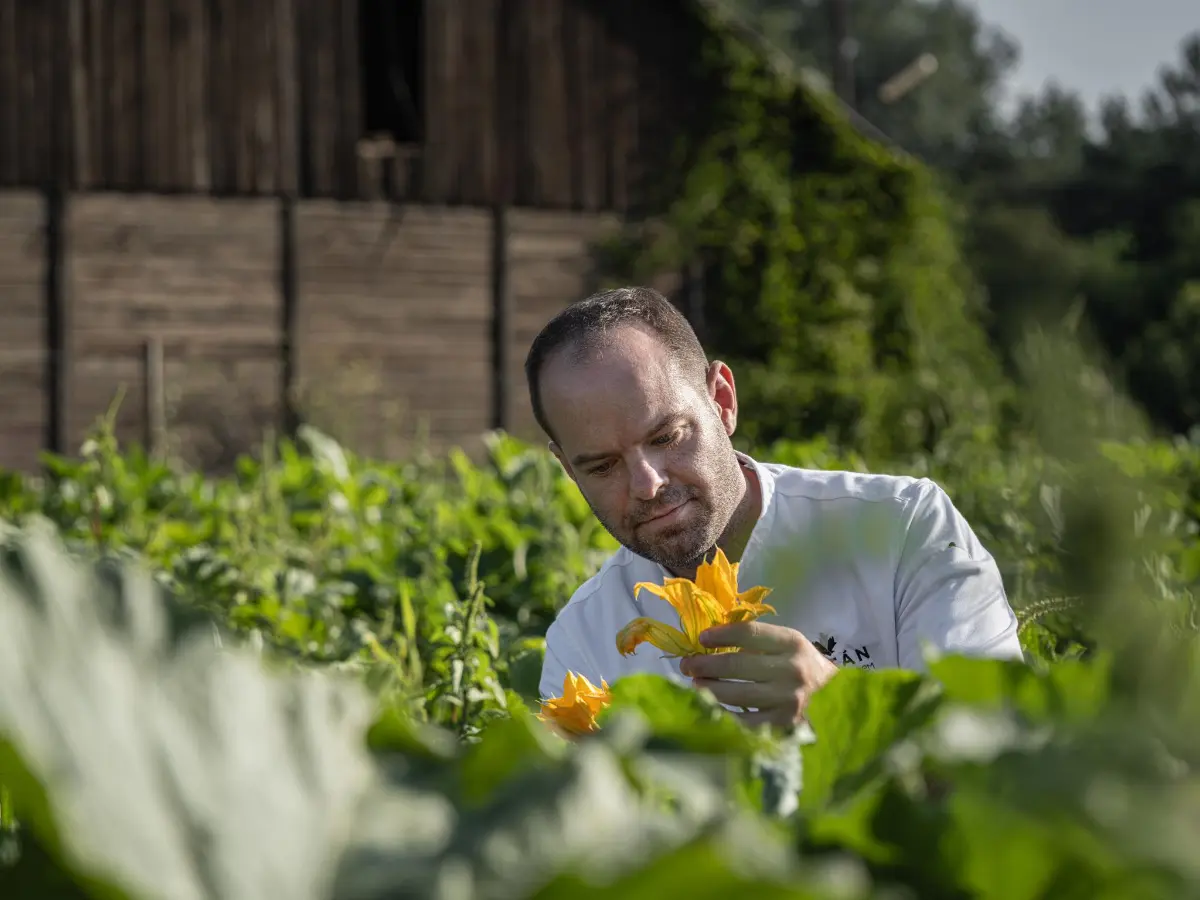
When hosting trainees, how much mentoring do you really have the opportunity to do?
It’s no coincidence that we don’t allow anyone to come here for less than two months. Many people would try to “jump in”, especially since we got the two stars. However, this is not a chef training course. The system will not come together just in flashes, because it’s more of a process, there is an evolution of how a chef learns to create a concept, to build a team. As a mentor, I can go halfway and say what I think, but I don’t want to change anyone.
I am just doing my job, and I know now that I can’t expect everyone to love me.
I should note that you can apply to the Platán complex not only as a chef, but also as a student: we work with local schools and I believe that with enough diligence, some humility, perseverance and dedication, the sky is the limit for any position.
What is life like in the kitchen with you?
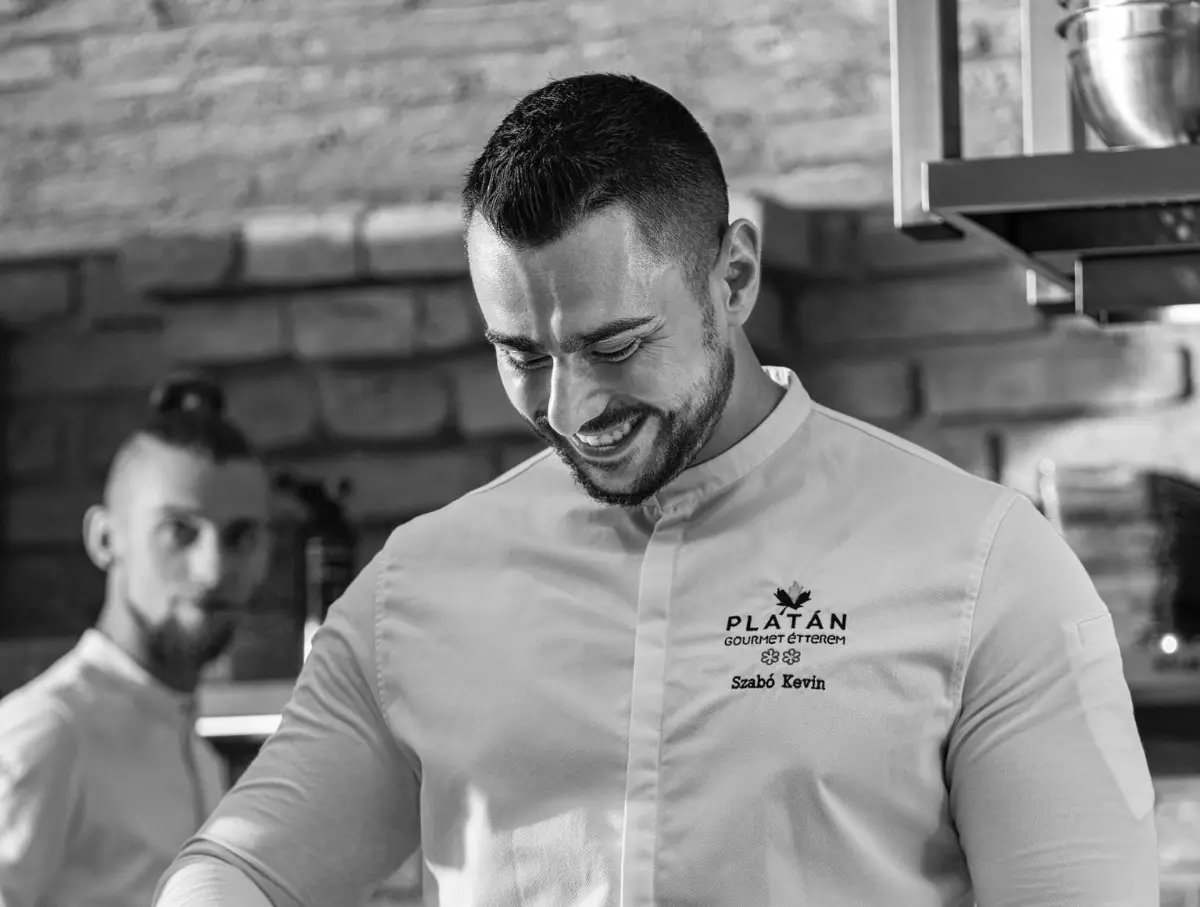
I think a kitchen can only be controlled from the inside, not from above and outside. So, first of all, I would like to point out that I’m here for a team of more than 10 people. We talk a lot outside service hours. We are not biorobots, but sentient, flesh and blood human beings who can have a bad day. I am surrounded by talented and enthusiastic young people with a competitive spirit – Kevin Szabó, who was Tamás Széll’s commis in the Bocuse d’Or Europe in 2016, is a good example. It is important that the intention is not to rival each other, but to help each other. It is important to give room for creativity, and I try to provide a supportive environment for this, and not to nip any ideas in the bud.
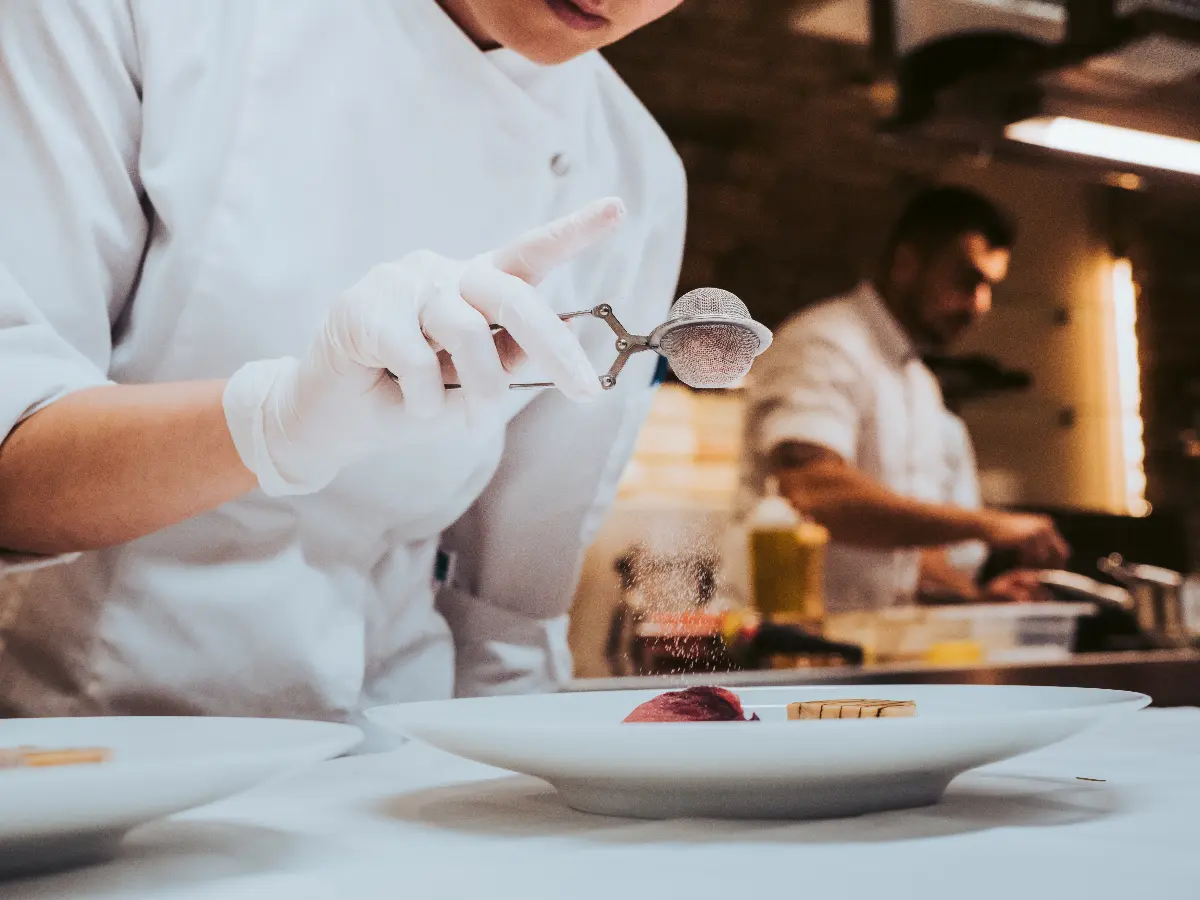
Do you see a positive shift in Hungarians’ attitude towards gastronomy lately?
Domestic demand has also definitely improved, and we are more conscious of our choice of restaurants and dishes. It has become fashionable to understand gastronomy and to cook – and the result is that people are increasingly looking for “local”, “seasonal” or even “home-grown” ingredients. They have started to grow herbs, make jam and ferment at home, and when they go to a restaurant, they no longer prioritise quantity over quality. In the last few years, the media, various cooking shows and competitions have all contributed to this, but we as restaurateurs and chefs also have a big responsibility. Here at Platán, it is a pleasure to see more and more local people visiting one of our units. They sometimes come for brunch at the bistro, a burger at the lakeside, a loaf of sourdough bread at our bakery, and even a reservation at Gourmet when celebrating a big anniversary.
There was a 12-year-old girl here the other day who asked to have dinner at a Michelin-starred fine dining restaurant for her birthday, and she went through our tasting menu. If I take that as a starting point, I think that in 10-20 years’ time, we can expect a much more educated public to be going to restaurants.
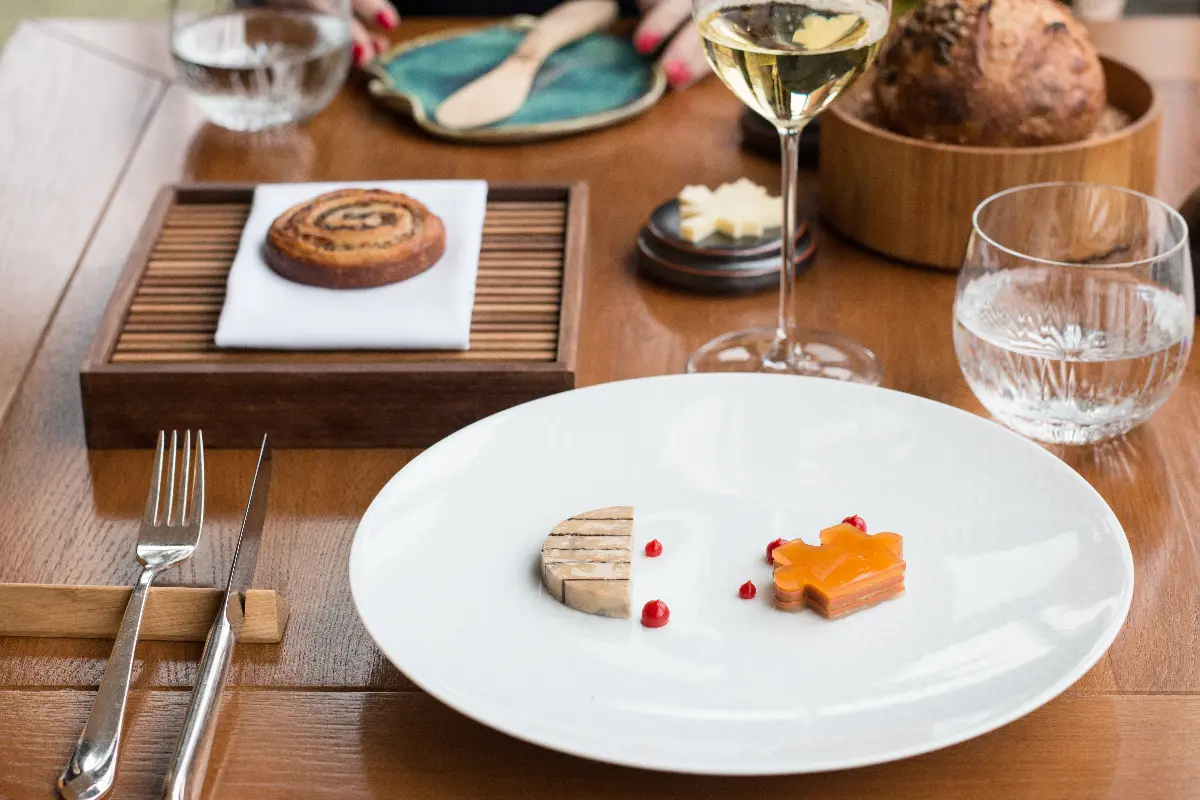
Where can you put your professional insights to use beyond the Platán complex?
We have been consulted on several occasions, for example, on the design and operation of the NOON restaurant and other so-called “gastronomic experience points” at the LUA Resort in Balatonfüred. Many of my advisory roles are alive and well, providing a lot for me, too. I have been saying for 10 years that top-quality gastronomy can and does survive outside the capital, and Tata is living proof of that. So I was particularly pleased when I was asked to work together on the concept of these units.
To frame the story – what room for development do you see within your own organisation?
I believe in cooperation – be it regional, fine arts, or whatever – and I am always looking for further connection points. In the same way, I am constantly looking at how we can improve the experience here at Platán Gourmet. Our service is very good, the concept of “Hungarian cuisine without borders” works well: a big advantage is that you can express your creativity in it, since it can even handle a dish like lobster with Székely-style sauerkraut. Our gardening area, which we worked hard on during the epidemic, is a good base for this, but it could be improved, and I would welcome more domestic producers in the supplier base. My profession is built on theirs, it’s an ecosystem that also has room for improvement – but I’m talking about this on a national scale.
